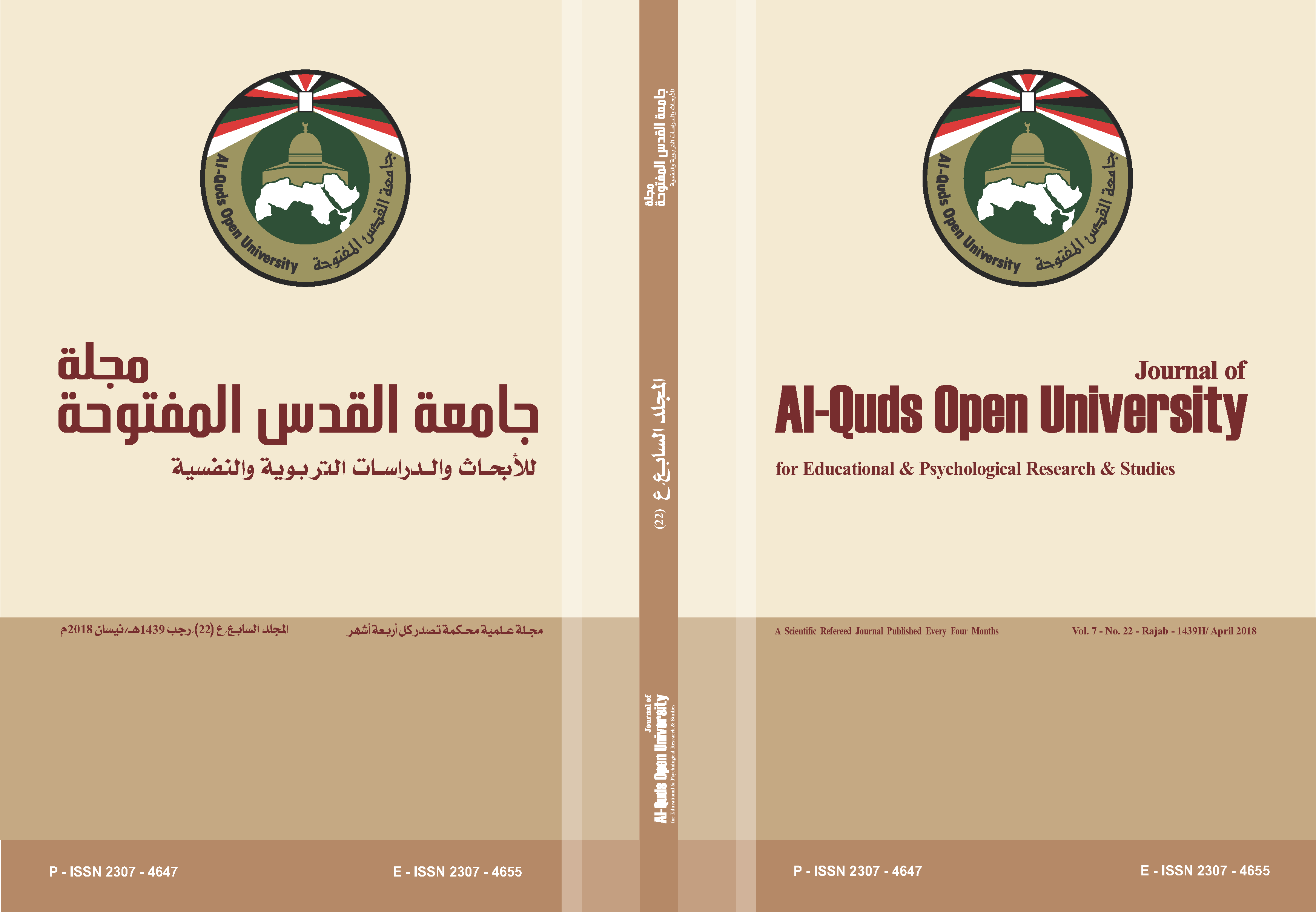Cognitive Dissonance and its Relationship with Thinking Styles and Social Support Resources among Yarmouk University Students
Keywords:
Cognitive Dissonance, Thinking Styles, Social Support ResourcesAbstract
This study investigated the level of cognitive dissonance and its relationship to thinking styles, social support resources,and some demographical variables among Yarmouk University Students. The population of the study consisted of (775) male and female students from Yarmouk university. The study adopted Cassel, Chow & Reiger’s cognitive dissonance scale, Alhamouri’s thinking styles scale, and Zimet, Dahlem, Zimet & Farley’s social support scale. The results showed that the level of cognitive dissonance among students was moderate in general and in all domains except feelings control. Furthermore, the results showed significant differences in the level of cognitive dissonance due to gender in favor of males, college in favor of scientific majors, and the university level in favor of the first-year students. Finally, the results showed that the other important , legislations style, interior style, minority style, executive style, liberate style, family and the preservative style explaned (14.1%) of cognitive dissonanceDownloads
Published
2018-06-11
How to Cite
العظامات أ. ع. ع. . ع., & محمود العتوم أ. ع. ي. (2018). Cognitive Dissonance and its Relationship with Thinking Styles and Social Support Resources among Yarmouk University Students. Journal of Al-Quds Open University for Educational & Psychological Research & Studies, 7(22). Retrieved from https://journals.qou.edu/index.php/nafsia/article/view/1987
Issue
Section
searches
License
- The editorial board confirms its commitment to the intellectual property rights
- Researchers also have to commit to the intellectual property rights.
- The research copyrights and publication are owned by the Journal once the researcher is notified about the approval of the paper. The scientific materials published or approved for publishing in the Journal should not be republished unless a written acknowledgment is obtained by the Deanship of Scientific Research.
- Research papers should not be published or republished unless a written acknowledgement is obtained from the Deanship of Scientific Research.
- The researcher has the right to accredit the research to himself, and to place his name on all the copies, editions and volumes published.
- The author has the right to request the accreditation of the published papers to himself.







2.png)






_2.png)

